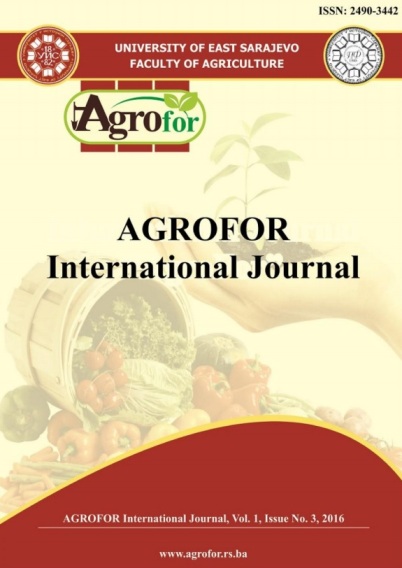THE EFFECT OF SELENIUM ON MERCURY TRANSPORT ALONG THE FOOD CHAIN
DOI:
https://doi.org/10.7251/AGRENG1603119ZAbstract
More than 500 years of mercury (Hg) production in Idrija (Slovenia) resulted in a
considerable pollution of Idrija region with Hg. Although the mine is closed for
more than 20 years, the total soil concentration of Hg may still reach up to several
hundred mgkg-1dry weightin local gardens and more that thousand inother urban
regions. Hg in soil undergoesdifferent chemical transformations and in some
formsit may enterplants and higher trophic levelsin food chains, also with
biomagnification pattern.The local population is, besides air and dust, thus exposed
to mercury also via consumption of locally produced food.Several studies showed
that the increased level of selenium in soil may reduce the uptake of mercury in
plants but very few include other trophic levels in a food chain as well.In our pilot
study we followed an impact of Seon Hg transport from soil to plants
(Lactucasativa) and further to soil dwelling animals (Porcellioscaber). Lettuce was
planted in a contaminated soil from Idrija and in soil with added HgCl2. The leaves
of half of the plants weresprayed with Sesolution (5μg L-1)threeand five weeks
after planting.After six weeks plants were analyzed for Hg and Se and offered as
food to terrestrial isopods for two weeks. Our preliminary results revealed that
foliar treatment of plants with Se may affect Hg accumulation in plants and
therefore further transport of Hg across the food chain.

